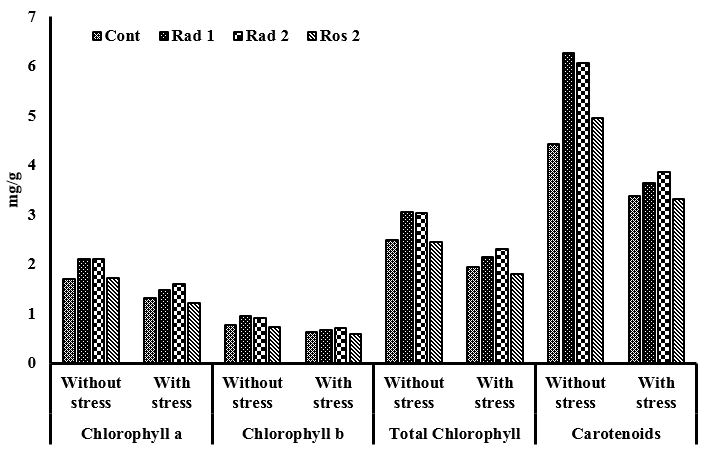Abstract
Three phosphate solubilizing bacteria were isolated and identified by 16S rRNA sequencing as Pseudomonas putida, Pseudomonas sp and Pseudomonas fulva . The strains were subjected to plant biochemical testing and all the PGPR attributes were checked in the presence of pesticides (chlorpyrifos and pyriproxyfen). The phosphate solubilizing index of strain Ros2 was highest in NBRIP medium i.e 2.23 mm. All the strains showed acidic pH (ranges from 2.5-5) on both medium i.e PVK and NBRIP. Strain Ros2 was highly positive for ammonia production as well as siderophore production while strain Rad2 was positive for HCN production. The results obtained by the strains Rad1, Rad2 and Ros2 for auxin production were 33.1, 30.67 and 15.38 µg ml-1, respectively. Strain Rad1 showed 16% increase in percentage germination in comparison to control in the presence of pesticide stress. Most promising results for chlorophyll content estimation were obtained in the presence of carotenoids upto 6 mgg-1 without stress by both strains Rad1 and Rad2. Study suggests that especially strain Ros2 can enhance plant growth parameters in the pesticide stress.
Keywords:
Pseudomonas; phosphate solubilizing bacteria; siderophore production; chlorpyrifos; pyriproxyfen

 Thumbnail
Thumbnail
 Thumbnail
Thumbnail
 Thumbnail
Thumbnail


